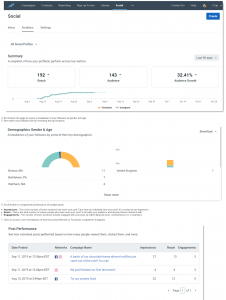By Maria Colacurcio

This past November, 4.5 million workers resigned in search of new opportunities. Many are looking for more transparency, equity, and a company that shares their values.
If you’re one of those workers or you’re thinking about leaving your job, it can be hard to know how to begin using this newfound leverage to get the job that’s best for you, and you can’t always count on hiring managers to do the right thing.
Even with this newfound power, it’s important to go into a new job search, a salary negotiation, and an exploration of a potential new employer’s values with a plan. It’s never been more acceptable for prospective employees to ask the tough questions about workplace equity.
Start with pay
Fair pay is the foundation of workplace equity, and no compensation decision is more important than your starting salary. If there is a pay gap on your first day of work, it will widen over time—and will often impact other elements of your total rewards (bonus, which is typically a percentage of base salary; 401(k) savings, etc.) for years to come. But how do you know if companies are committed to paying you equitably?
First, do your homework. When reviewing postings, look for companies that include salary ranges. Conduct research by looking at comparable jobs, talking to friends, and checking sites like Glassdoor to get a sense of how your role is valued in the market.
Second, if you’re interviewing with a company that hasn’t shared the salary range, ask for it. The legal landscape is moving in the direction of requiring companies to disclose it. In places like New York City and Colorado, employers are required by law to proactively disclose salary ranges for job positions, compelling employers all across the country to address pay transparency head on if they want to hire in these top-tier markets. In many other markets (Maryland, Cincinnati, Washington State), you have to ask for those salary ranges, but employers are required to give them to you.
Third, if the company with which you’re interviewing is resistant to sharing salary ranges, take heart: This may not be the company for you, and this may be the moment to take your talents elsewhere. You have every right to explain that you want to ensure your role will be valued competitively and within your expectations. Otherwise, you don’t want to waste their time (or yours!).
Ask about fair and equitable rewards
Starting pay sets the stage, but companies today need to ensure equity throughout an employee’s tenure. There are specific questions you should ask a prospective employer once you’ve satisfied yourself that they are approaching your starting pay and rewards in an equitable way.
1. What considerations go into how jobs are valued? You’ll want to hear clear answers: perhaps that market data plus the role’s impact on achieving business goals are important. Maybe they are focused on bringing people back to the office and emphasize that roles in the office are considered more important than roles that are remote. Companies value jobs and employees in many ways, and that’s okay; what you’re looking for is clarity. If the company doesn’t want to disclose this—or worse, doesn’t know the answer—you may want to move on.
2. How is performance reviewed and rewarded? Again, you’re looking for clarity here. You want to hear that there is a formal performance review process, that performance goals are captured and monitored, and how performance is rewarded.
3. How transparent are they around fair pay across the organization? What do they share about racial or gender gaps that exist, and what is the process they’re using to solve for these?
Get clarity on the commitment to opportunity equity
The next step is to clarify what the company does to ensure everyone has opportunities to grow their skills and advance at the company. You probably read about a different company’s new DEI initiative every day, yet struggle to discern what’s performative and for PR versus what’s real and tangible.
So, ask your employer or interviewer:
- What are the guidelines for employee promotion?
- How do you ensure equal access to advancement and promotion opportunities?
Their answers will tell you a lot. What answers are you looking for? Ideally, you want to hear the company is clear in the criteria for promotion; has criteria that are not overly rigid and take into consideration multiple paths to advancement; and that they are measuring and monitoring access to opportunities.
Promotion opportunities should be visible to all employees—just like salary ranges. Ask questions about how the company ensures the systems and processes to advance employees are consistent, equitable, and accessible to everyone.
As an extension of that, learning opportunities should be visible and accessible to everyone. Ask about rotation programs, leadership training, and opportunities for skills development. This will tell you more about the experience you can expect as an employee, the company’s vision for its employees’ roles in their continued success, and their commitments to developing long-term, engaging relationships with their employees. The development of your skills is another form of their investment in you.
It’s entirely normal to feel uneasy when asking these uncomfortable questions of a potential future employer. But remember: Pay equity and DEI are within a company’s control, and it’s on them to get it right if they want your valuable skills and services. So don’t be afraid to ask your current or prospective employer if they conduct pay analyses and how they monitor employee movement and opportunity. And if they do, ask if they’re transparent with their employees about the results.
It’s no longer plausible for companies to hide behind legal smoke screens and progressive platitudes, so don’t let them.
The truth about pay transparency and equity is that it’s table stakes for a larger conversation about workplace equity and whether your company is truly valuing you for who you are and what you contribute—without bias. If you’re not getting paid equitably, then chances are you are not going to receive the same opportunities for promotion and advancement. Companies need forward-thinking strategies to solve these problems, and there’s no bigger motivating factor than hearing directly from employees and future hires.
Maria Colacurcio is the CEO of Syndio.
Fast Company , Read Full Story
(44)
Report Post





